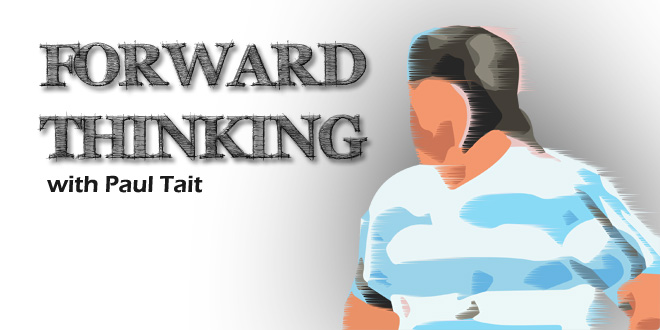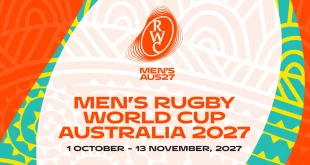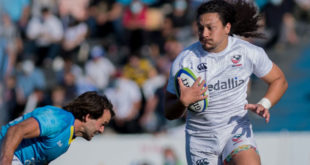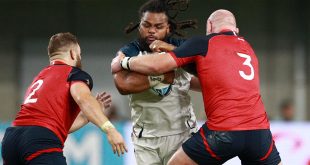Romania and Spain recently lost their RWC qualifying appeals. Both European countries and Belgium were disqualified from the RWC 2019 qualifying process by World Rugby for the fielding of ineligible players.
Romania had fielded Sione Faka’osilea of Tonga in their matches only for it to be revealed that he was never eligible for them. He was captured by his native country based on representing them in Rugby 7’s.
Spain’s disqualification was less cut-and-dry. It asked serious questions of World Rugby’s eligibility laws, ultimately revealing the ugly side of a nationality-revolving door which has been well utilized by some. Rather than prepare youth for representing their country at senior level the World Rugby U20’s stands out as being reminiscent of a U20’s Stock Exchange. More on that later.
Spain’s disqualification caught many head scratching. They simply could not understand what had gone wrong. Getting down to details what happened was that two of Spain’s former France U20’s players, Mathieu Bélie and Bastien Fuster, had played for France U20’s against Wales U20’s.
The complexity of World Rugby Regulation 8 saw Belie and Fuster captured by playing for one ‘next of XV’ against another. Officially this constitutes cheating. What matters in this is that had they not played against Wales U20’s they would never have been captured under World Rugby eligibility laws, thereby free to represent Spain.
The process was concluded by World Rugby on June 06 2018. Three days later was the start of the official International Window. The annual June Internationals saw 37 players with World Rugby U20’s experience involved for a different country. The complete list is detailed below:
| PLAYER | U20’s | SENIORS |
| Sekope Kepu | New Zealand U19’s 2005, U21’s 2007 | Australia |
| Tevita Kurudriani | Fiji U20’s 2010 | Australia |
| Samu Kerevi | Fiji U20’s 2012 | Australia |
| Brad Shields | New Zealand U20’s 2011 | England |
| Nemani Nadolo | Australia U20’s 2008 | Fiji |
| Ben Volavola | Australia U20’s 2011 | Fiji |
| Uini Atonio | Samoa U20’s 2009 | France |
| CJ Stander | South Africa U20’s 2009-2010 | Ireland |
| Dean Budd | New Zealand U19’s 2005 | Italy |
| Tommaso Allan | Scotland U20’s 2012-2013 | Italy |
| Braam Steyn | South Africa U20’s 2012 | Italy |
| Amanaki Mafi | Tonga U20’s 2009 | Japan |
| Sione Teaupa | Tonga U20’s 2012 | Japan |
| Shannon Frizell | Tonga U20’s 2014 | New Zealand |
| Tusi Pisi | New Zealand U21’s 2003 | Samoa |
| Jack Lam | Australia U19’s 2006 | Samoa |
| Piula Fa’asalele | New Zealand U19’s 2006 | Samoa |
| Seilala Lam | Australia U20’s 2008-2009 | Samoa |
| Mat Luamanu | New Zealand U20’s 2008 | Samoa |
| Paul Alo-Emile | Australia U20’s 2010-2011 | Samoa |
| Chris Vui | New Zealand U20’s 2013 | Samoa |
| Luke Hamilton | Wales U20’s 2011-2012 | Scotland |
| Allan Dell | South Africa U20’s 2012 | Scotland |
| Kurt Morath | New Zealand U19’s 2003, U21’s 2005 | Tonga |
| Paea Fa’anunu | New Zealand U20’s 2008 | Tonga |
| Nasi Manu | New Zealand U20’s 2008 | Tonga |
| Dan Faleafa | New Zealand U20’s 2009 | Tonga |
| Nafi Tuitavake | New Zealand U20’s 2009 | Tonga |
| Paula Ngauamo | New Zealand U20’s 2010 | Tonga |
| Ben Tameifuna | New Zealand U20’s 2011 | Tonga |
| Penikolo Latu | New Zealand U20’s 2013 | Tonga |
| Vunipola Fifita | Australia U20’s 2016 | Tonga |
| Greg Peterson | Australia U20’s 2010-2011 | USA |
| Will Hooley | England U20’s 2013 | USA |
| Gareth Anscombe | New Zealand U20’s 2011 | Wales |
| Ross Moriarty | England U20’s 2013-2014 | Wales |
| Ian Prior | Australia U20’s 2010 | Zimbabwe |
The table demonstrates the widespread nature of U20’s being a non-capturing enterprise. This raises two separate points of note. Firstly nominating a national age-grade side as the ‘next of XV’ was always flawed, which World Rugby itself admitted in no longer enabling U20’s sides to be capturing as of 2017. The second is resemblance of Rugby’s U20’s as a stock exchange, that being an environment in which players are actively bought and sold, albeit with the developing union not receiving a paycheck.
In some of the above cases it is true that a player was paid to move from A to B with union B subsequently capping him. Some were eligible prior to trading unions, that being they qualify based on a parent, grandparent or that they played U20’s for a country other than that which they are from.
A notable point of the World Rugby U20’s over the years has been players getting permission from one union to play for another, effectively having it confirmed that they would remain eligible unlike Bélie and Fuster. Charles Piutau was famously green lighted to play U20’s for Tonga and still be an All Black. Ross Moriarty played for England U20’s knowing he would still be eligible for Wales. Both qualify via a parent.
The list of such instances runs deep. Allan Dell and Braam Steyn played for South Africa’s first U20’s side to be designated as the ‘Next Of XV’. They went on to play for Scotland and Italy respectively with the unions targeting them specifically to play for their test teams. Ireland acted the same with CJ Stander as did Wales with Gareth Anscombe.
Rugby’s Stock exchange works by unions having full-time employees who actively seek and recruit players. Ireland got South African U20’s captain CJ Stander free of charge as South Africa were not paid a transfer free. He now plays for Munster and is very well paid. Meanwhile Spain were disqualified for fielding players from the same tournament as Stander who play rugby for far less revenue. All within World Rugby’s laws.
On June 09 Brad Shields debuted for England. Him being a U20’s World Champion with New Zealand did not make him captured for New Zealand and nor did him twice having been a member of All Blacks training squads. The son of English parents, Shields was called-up by Eddie Jones with World Rugby watching on, all within the laws.
Brad Shields and Nathan Hughes both faced South Africa in June. Hughes, a player with prior experience playing for the Fiji Warriors, commented on Shield’s eligibility by saying “he (Shields) has got an English passport.”
Hughes’ attempt to justify Shields involvement despite never having played in England only served to question the validity of Hughes playing for England. Shields has a British passport with there being no such thing as an English passport.
Ultimately Spain’s progress has been stalled by World Rugby’s decision. Comparably Hughes is a player receiving far greater pay, than Bélie and Fuster, and doing so from a far wealthier union and he is confused as to which passport people of the nationality he represents hold.
 Americas Rugby News Rugby news from across the Americas!
Americas Rugby News Rugby news from across the Americas!




